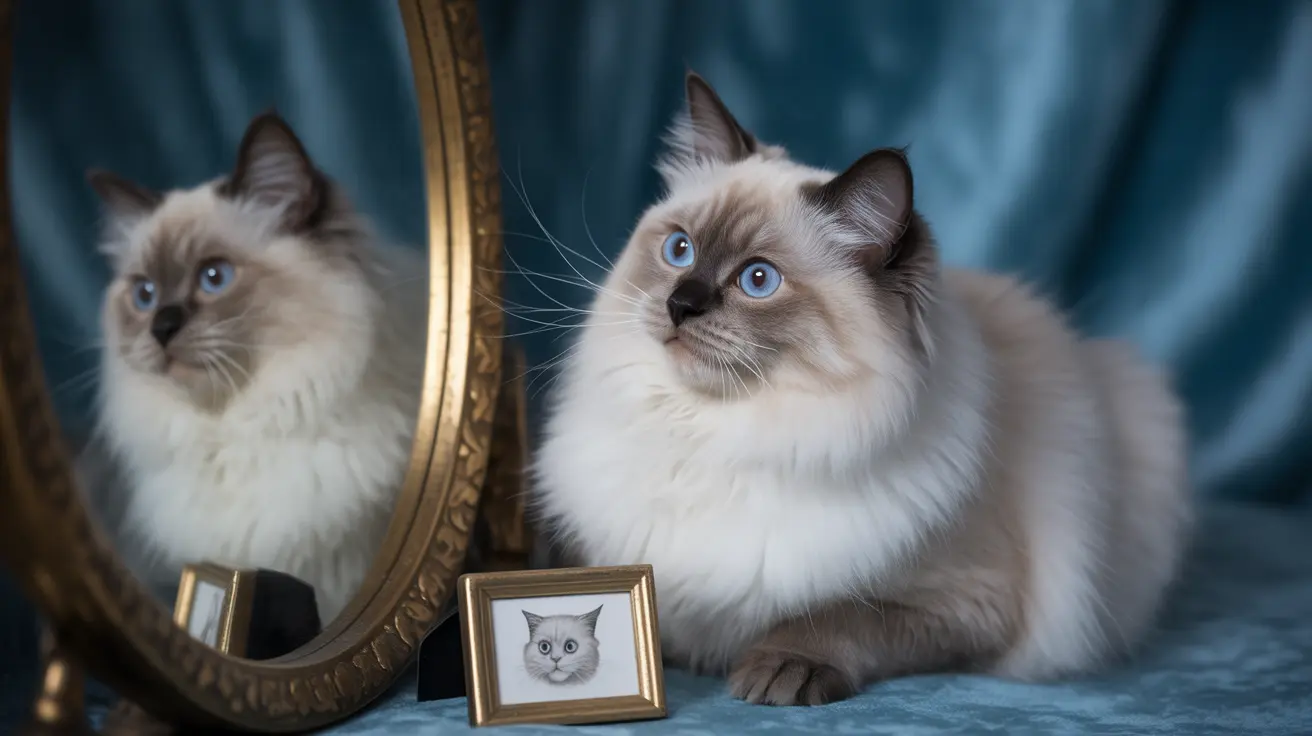The question of whether cats are self-aware has long fascinated both scientists and pet owners alike. While these mysterious creatures display remarkable intelligence and complex behaviors, their level of self-awareness remains a subject of ongoing research and debate in the scientific community.
Recent studies suggest that cats may possess a unique form of self-awareness that differs significantly from human consciousness. Understanding this aspect of feline cognition not only helps us better comprehend our furry companions but also provides insights into the broader spectrum of animal consciousness.
The Mirror Test and Feline Self-Recognition
The traditional mirror test, widely used to assess self-awareness in animals, presents an interesting challenge when it comes to cats. Most felines either ignore their reflection or react as if they're encountering another cat, suggesting they don't recognize themselves visually the way humans or some other animals do.
However, scientists argue that this doesn't necessarily mean cats lack self-awareness. The test's heavy reliance on visual recognition may not be suitable for creatures that primarily navigate their world through scent and touch.
Alternative Signs of Cat Self-Awareness
Cats demonstrate self-awareness through various behaviors that go beyond visual recognition:
- Precise body awareness when navigating tight spaces
- Understanding of personal physical capabilities
- Distinct individual preferences
- Social awareness and emotional responses
- Territory marking and scent recognition
These behaviors suggest that cats possess what researchers call "ecological self-awareness" – a practical understanding of their physical presence and capabilities in their environment.
The Role of Sensory Perception
Unlike humans, cats process self-awareness primarily through non-visual senses. Their sophisticated olfactory system plays a crucial role in how they perceive themselves and their environment. When a cat marks their territory or investigates their own scent marks, they're demonstrating a form of self-recognition that's more relevant to their species than visual reflection.
Evidence of Complex Cognitive Abilities
Research has revealed several indicators of sophisticated cognitive processing in cats:
- Problem-solving abilities requiring self-awareness
- Emotional responses to personal experiences
- Recognition of their name and individual identity
- Social learning and memory formation
- Understanding of cause-and-effect relationships
Scientific Perspectives on Feline Consciousness
Modern research suggests that self-awareness exists on a spectrum rather than as a binary trait. Cats may possess what scientists term "minimal" or "perceptual" self-awareness, which differs from human metacognitive self-recognition but remains sophisticated in its own right.
Frequently Asked Questions
Do cats recognize themselves in mirrors, and what does the mirror test reveal about their self-awareness?
Most cats don't recognize themselves in mirrors and typically fail the traditional mirror test. However, this reveals more about the test's limitations than about feline self-awareness, as it doesn't account for cats' primary reliance on non-visual senses.
How do cats show self-awareness if they generally fail the mirror self-recognition test?
Cats demonstrate self-awareness through their precise body awareness, territorial behaviors, personal preferences, and social interactions. They show understanding of their physical capabilities and limitations, suggesting a practical form of self-awareness.
Can I test my cat for self-awareness at home using a mirror and a mark, and how should I interpret their behavior?
While you can try the mirror test at home, remember that a cat's reaction (or lack thereof) doesn't definitively prove or disprove self-awareness. Focus instead on observing their daily behaviors that demonstrate body awareness and individual identity.
What senses do cats rely on for self-recognition if not primarily visual cues like reflections?
Cats primarily rely on their sense of smell, touch, and proprioception (body awareness) for self-recognition. Their olfactory system is particularly important for identifying themselves and their territory.
Are there behaviors or signs my cat exhibits that suggest it has a form of self-awareness distinct from humans?
Yes, cats show distinct signs of self-awareness through behaviors like careful navigation of spaces, territorial marking, personal grooming, and emotional responses to situations. These behaviors indicate a form of self-awareness that's uniquely feline rather than comparable to human self-awareness.
Understanding feline self-awareness requires us to look beyond human-centric measures and appreciate the unique ways cats experience and interact with their world. While they may not recognize themselves in mirrors, cats demonstrate sophisticated forms of self-awareness that are perfectly adapted to their nature and needs.






